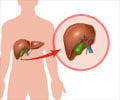The Transplantation of Human Organs (Amendment) Act, 2011 (Central Act 16 of 2011) has been adopted by the state of Tamil Nadu on 24th March 2020.
- On 24th March 2020, the Transplantation of Human Organs (Amendment) Act, 2011 has come into force in the state of Tamil Nadu
- Between 2008 and 2019, Tamil Nadu records 7,783 //organ transplants
- ‘Chennai’ stands as the capital for organ transplantation
Read More..
Purpose of the Transplantation of Human Organs Act
Organ transplantation in Tamil Nadu is regulated by India's Transplantation of Human Organs Act, 1994. The Transplant Authority of Tamil Nadu (TRANSTAN) of the Government of Tamil Nadu and several NGOs aid in facilitating organ transplantation.
The Transplantation of Human Organs (Amendment) Act, 2011 (Central Act 16 of 2011) provides regulation of removal, storage, and transplantation of human organs and tissues for therapeutic purposes, and for the prevention of commercial dealings in human organs and tissues.
Facts about Organ Transplantation in Tamil Nadu
- Tamil Nadu (TN) ranks first in India in the deceased organ donation rate
- Chennai is the capital for organ transplantation
- In 2008, TN was also the first Indian state to make brain death certification mandatory
- "Green corridors" were created for the first time in Tamil Nadu, which helped in quickly transporting the donated organs to its destined hospital
- TN has recorded 7,783 organ transplants between 2008 and 2019, after restraining organ trade with new regulations
- Non-profit organizations such as MOHAN Foundation have also played a significant part in the domain of organ transplantation
- Transplant coordinators are being trained by MOHAN foundation in Chennai
The National Organ and Tissue Transplant Organization (NOTTO) has requested major hospitals to stop all operations of transplant during the pandemic. Although there are a number of people waiting for a transplant during the lockdown, it is best to avoid transplantation, as they could be at higher risk of developing COVID-19, which could lead to severe consequences.
Conclusion
In India, the Transplantation of Human Organs (Amendment) Act, 2011 has come into force in the states of Goa, Himachal Pradesh and West Bengal, along with all Union Territories. In April 2020, Tamil Nadu has also adopted the Amendment Act almost nine years after it was passed.
Source-Medindia










